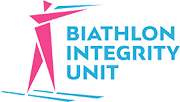Medication and Supplements
It’s that time of year again. You begin to feel unwell, and then you go down with flu-like symptoms.
To get back to training, you decide to take some flu medication.
WAIT!
Stop right there…
As an athlete, you can’t just take any medication prescribed by a doctor or bought over the counter.
It could contain prohibited substances.
And it’s your responsibility to check the medication before you use it:
- You can ask your National Anti-Doping Organisation (NADO) for help or use their drug database (https://www.globaldro.com/home/other-countries);
- Or you can use GlobalDro (https://www.globaldro.com/Home), but this is mainly applicable to medication used in English speaking countries, Switzerland and Japan).
Be careful: medication bought abroad might contain different substances from those bought in your home country, even if the name/label is the same!
Therapeutic Use Exemption (TUE)
If you have a medical condition and you need to take a medication or use a method that is on the prohibited list, you need to apply for a Therapeutic Use Exemption (TUE), ideally with the help of your team doctor.
TUEs have to be applied for in advance and can take some time to be processed. So, make sure to do so 30 days before you need to take the medication or use the method (exceptions apply, e.g., in case of an emergency).
Also, TUEs have an expiry date. Make sure to check it before using the medication!
Find out more about how and where to apply for a TUE here.











